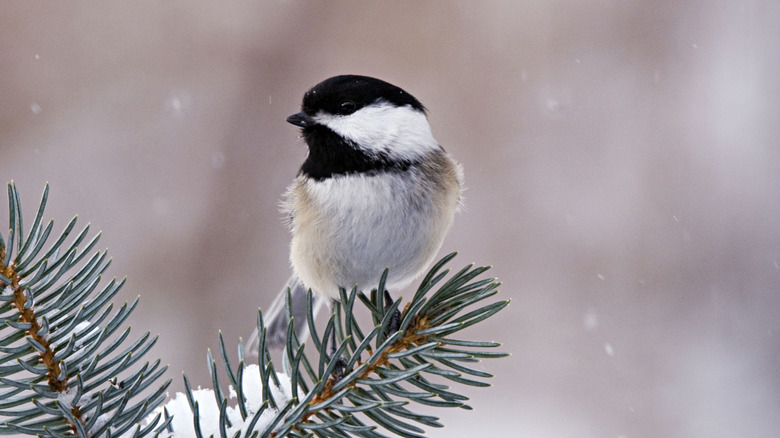How To Distinguish A Male & Female Chickadee
The black-capped chickadee is a cheerful, tiny bird that graces woodlands and bird feeders across North America. You might wonder how to tell a male and female chickadee apart, given their similarities. A few clues help identify chickadee gender.
Facts about chickadees
Chickadees are social birds that live in small flocks. They also associate with other small bird species such as kinglets, nuthatches, creepers, vireos, warblers, titmice, and various woodpeckers
Common chickadee food sources
Chickadees are omnivores; their food derives from both plant and animal sources. Their high metabolism requires a constant diet of food to withstand the cold of winter. Chickadee food from animals consists of insects and their larvae, snails, spiders, mites, ants, and animal fat from carcasses.
Chickadees get food from surfaces. They also hang upside down to reach some sources, and occasionally they even hover to catch insects in the air.
Plant sources of chickadee food include seeds, berries, vegetables, and other plant parts. At bird feeders, chickadees enjoy sunflower seeds, suet, peanut butter, peanuts, and mealworms. Providing chickadees with a feeder offers them good year-round food sources, all while people can enjoy their acrobatic antics.
One interesting behavior chickadees display with their food is their method of caching. Chickadees store food in various locations such as the crevices in bark. Their sharp memories aid them in finding these caches as needed.
Differences between the male and female chickadee
There are, however, behaviors that can reveal the gender of a chickadee. The female chickadee, for example, is the only one that builds a nest. She may excavate a hole or take over an abandoned cavity from another species. The female chickadee will then construct her cup-shaped nest from found materials such as, feathers, bark, grasses, mosses, hair, and other materials
Providing a chickadee bird house
If you enjoy the vibrant little chickadee, you might want to offer a chickadee bird house. This can be made as a nest box to appeal to breeding pairs. Position the chickadee bird house prior to the breeding season.
A chickadee bird house should be lined with sawdust or wood shavings. Place the bird house about 60 feet into a wooded habitat, and put a guard on it to detract predators. The entrance to the bird house should be unobstructed.
References
- The Cornell Lab of Ornithology: Birds of North America: Black-Capped Chickadee
- The Cornell Lab of Ornithology: All About Birds: Black-Capped Chickadee Identification
- The Cornell Lab of Ornithology: All About Birds: Black-Capped Chickadee Life History
- Audubon Society: Black-Capped Chickadee
- Penn State New Kensington Virtual Nature Trail: Black Capped Chickadee
